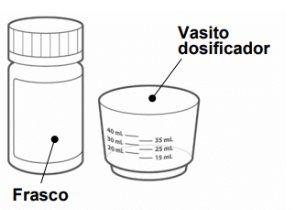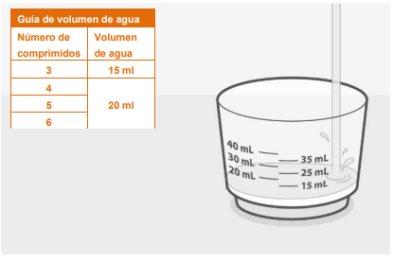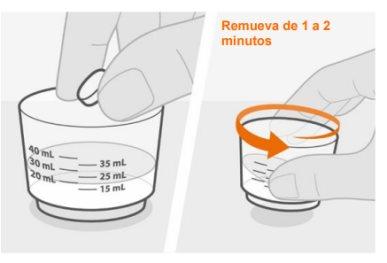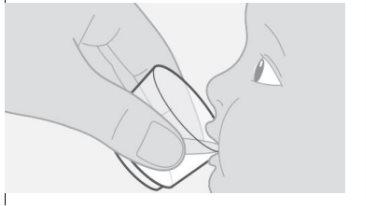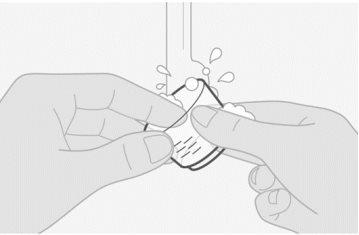
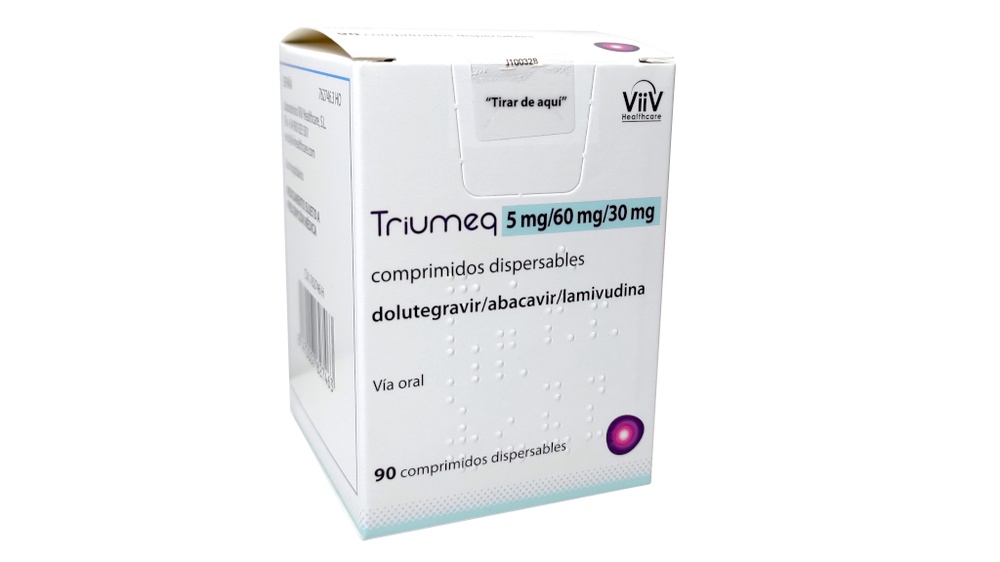
TRIUMEQ 5 mg/60 mg/30 mg DISPERSIBLE TABLETS

Ask a doctor about a prescription for TRIUMEQ 5 mg/60 mg/30 mg DISPERSIBLE TABLETS

How to use TRIUMEQ 5 mg/60 mg/30 mg DISPERSIBLE TABLETS
Introduction
Patient Information: Summary of Product Characteristics
Triumeq 5mg/60mg/30mg dispersible tablets
dolutegravir/abacavir/lamivudine
Read all of this leaflet carefully before your child starts taking this medicine because it contains important information for them.
- Keep this leaflet, you may need to read it again.
- If you have any further questions, ask your doctor or pharmacist.
- This medicine has been prescribed for your child. Do not pass it on to others. It may harm them, even if their symptoms are the same as your child's.
- If your child experiences any side effects, consult your doctor or pharmacist. This includes any possible side effects not listed in this leaflet. See section 4.
Contents of the pack and other information
- What is Triumeq and what is it used for
- What you need to know before your child takes Triumeq
- How to take Triumeq
- Possible side effects
- Storage of Triumeq
- Contents of the pack and other information
- Step-by-step instructions for use
1. What is Triumeq and what is it used for
Triumeq is a medicine that contains three active substances used to treat HIV infection: abacavir, lamivudine, and dolutegravir. Abacavir and lamivudine belong to a group of antiretroviral medicines (medicines used to treat HIV infection) called nucleoside analogue reverse transcriptase inhibitors (NRTIs), and dolutegravir belongs to a group of antiretroviral medicines called integrase inhibitors (INIs).
Triumeq is used to treat HIV infection(Human Immunodeficiency Virus) in children from 3 months of age and weighing at least 6 kg and less than 25 kg.
Before prescribing Triumeq to your child, your doctor will perform a test to find out if they have a particular gene called HLA-B*5701. Triumeq must not be used in patients who are known to have this HLA-B*5701 gene. Patients with this gene have a high risk of developing a severe allergic reaction if they take Triumeq (see "Hypersensitivity reactions" in section 4).
Triumeq does not cure HIV infection; it reduces the amount of virus in the body and keeps it at a low level. It also increases the number of CD4 cells in the blood. CD4 cells are a type of white blood cell that helps the body fight infections.
Not everyone responds to treatment with Triumeq in the same way. Your doctor will monitor the effectiveness of the treatment in your child.
2. What you need to know before your child takes Triumeq
Do not give Triumeq
- if your child is allergic(hypersensitive) to dolutegravir, abacavir (or any other medicine that contains abacavir), or lamivudine or to any of the other ingredients of this medicine (listed in section 6).
Read carefully all the information about hypersensitivity reactions in section4.
- if your child is taking a medicine called fampridine(also known as dalfampridine; used to treat multiple sclerosis).
→ If you think any of these apply to your child, consult your doctor.
Warnings and precautions
IMPORTANT — Hypersensitivity reactions
Triumeq contains abacavir and dolutegravir. These two active substances can cause a severe allergic reaction known as a hypersensitivity reaction. Your child must never take abacavir or medicines that contain abacavir again if they have had a hypersensitivity reaction: this can be life-threatening.
You must read carefully the information about “Hypersensitivity reactions” in section4.
The pack of Triumeq includes an Information Cardto remind you and healthcare staff of the possibility of a hypersensitivity reaction. You must take out this card and always carry it with you.
Be careful with Triumeq
Some people who take Triumeq or other combination treatments for HIV have a higher risk of developing serious side effects than others. You need to know that there is a higher risk:
- if your child has moderate or severe liver disease
- if your child has ever had liver disease, including hepatitis B or C (if your child has hepatitis B, do not stop taking Triumeq without your doctor's advice, as it may get worse)
- if your child has a kidney problem.
→ Consult your doctor before starting Triumeq if any of these situations apply to your child. They may need extra tests, including blood tests, while taking this medicine. For more information, see section 4.
Hypersensitivity reactions to abacavir
Even patients who do not have the HLA-B*5701 gene can develop a hypersensitivity reaction(severe allergic reaction).
→ Read carefully all the information about hypersensitivity reactions in section4 of this leaflet.
Risk of cardiovascular events
It cannot be excluded that abacavir increases the risk of cardiovascular events.
→ Tell your doctorif your child has cardiovascular problems, if they smoke, or if they have any disease that may increase their risk of cardiovascular disease, such as high blood pressure or diabetes. Do not stop giving Triumeq unless your doctor advises you to.
Be aware of important symptoms
Some people who take medicines for HIV infection develop other conditions, which can be serious. These include:
- symptoms of infections and inflammation
- joint pain, stiffness, and bone problems.
You need to know what important signs and symptoms to look out for while giving your child Triumeq.
→ Read the information about “Other possible side effects of combination HIV therapy” in section4 of this leaflet.
Children
Triumeq must not be used in children under 3 months of age or weighing less than 6 kg because it has not been studied in these groups.
Children must attend scheduled medical appointments(see section 3, How to take Triumeq, for more information).
Other medicines and Triumeq
Tell your doctor if your child is taking, has recently taken, or might take any other medicines.
Some medicines may affect how Triumeq works, or increase the chance of side effects. Triumeq may also affect how other medicines work.
Tell your doctorif your child is taking any of the following medicines:
- metformin, to treat diabetes
- medicines called antacids, to treat indigestionand heartburn. Your child must not take an antacidduring the 6 hours before taking Triumeq, or for at least 2 hours after taking it (see also section 3).
- supplements or multivitamins that contain calcium, iron, or magnesium. If your child takes Triumeq with food, they can take supplements or multivitamins that contain calcium, iron, or magnesium at the same time as Triumeq. If they do not take Triumeq with food, they must not take supplements or multivitamins that contain calcium, iron, or magnesiumduring the 6 hours before taking Triumeq, or for at least 2 hours after taking it (see also section 3).
- emtricitabine, etravirine, efavirenz, nevirapine, or tipranavir/ritonavir, to treat HIV infection
- medicines (usually liquids) that contain sorbitol and other polyalcohols (such as xylitol, mannitol, lactitol, or maltitol), if taken regularly
- other medicines that contain lamivudine, used to treat HIV infectionor hepatitis B
- cladribine, used to treat hairy cell leukemia
- rifampicin, to treat tuberculosis(TB) and other bacterial infections
- trimethoprim/sulfamethoxazole, an antibiotic to treat bacterial infections
- phenytoin and phenobarbital, to treat epilepsy
- oxcarbazepine and carbamazepine, to treat epilepsyor bipolar disorder
- St. John's Wort(Hypericum perforatum), a herbal medicine to treat depression
- methadone, used as a heroin substitute. Abacavir increases the rate at which methadone is removed from the body. If your child is taking methadone, they may need to be monitored for signs of withdrawal. They may need their methadone dose to be changed.
- Riociguat, to treat high blood pressurein the blood vessels(arteries) that carry blood from the heart to the lungs. Your doctor may need to reduce your child's dose of riociguat, as abacavir may increase the levels of riociguat in the blood.
→ Tell your doctor or pharmacistif your child is taking any of these medicines. Your doctor may decide to adjust the dose or prescribe extra tests.
Pregnancy
If the patient is pregnant, thinks they may be pregnant, or plans to become pregnant:
→ Consult your doctorabout the risks and benefits of taking Triumeq.
Tell your doctor immediately if they become pregnant or plan to become pregnant. Your doctor will review their treatment. Do not stop taking Triumeq without consulting your doctor, as this could harm both the mother and the fetus.
Breast-feeding
It is not recommendedthat women living with HIV breast-feed their babies because HIV infection can be passed to the baby through breast milk.
A small amount of the components of Triumeq may also pass into breast milk.
If you are breast-feeding or thinking of breast-feeding, consult your doctor as soon as possible.
Driving and using machines
Triumeqmay make your child feel dizzyand may have other side effects that reduce their attention.
→ Do not let your child drive or operate machinery, unless you are sure their reflexes are not affected.
Triumeq contains sodium.
This medicine contains less than 1 mmol of sodium (23 mg) per dispersible tablet; this is essentially “sodium-free”.
3. How to take Triumeq
Follow exactly the instructions given to you by your doctor. If you are not sure, consult your doctor or pharmacist again.
Your doctor will decide the correct dose of Triumeq for your child, based on their weight.
If your child is under 3 months of age or weighs less than 6 kg, Triumeq is not suitable for them, because it is not known if Triumeq is safe and effective. Your doctor will prescribe the components separately for your child.
Triumeq can be taken with or without food.
The dispersible tablets must be dispersed in water. The tablets must be fully dispersed in the dosing cup provided before taking. Do not chew, cut, or crush the tablets. If your child cannot use the dosing cup provided, they may also need an oral syringe to take the medicine. Talk to your doctor for advice.
The dose in childrenmust be adjusted as they gain weight.
→ Therefore, it is important that childrenattend scheduled medical appointments.
Triumeq is available as film-coated tablets and dispersible tablets. The film-coated tablets and dispersible tablets are not the same. Therefore, do not switch between the film-coated tablets and dispersible tablets without talking to your doctor first.
Do not give your child anantacidduring the 6 hours before taking Triumeq, or for at least 2 hours after taking it. Other medicines that reduce acidity, such as ranitidine and omeprazole, can be taken at the same time as Triumeq.
→ Consult your doctor for advice on which acid-reducing medicines can be used with Triumeq.
If you give Triumeq with food, your child can take supplements or multivitamins that contain calcium, iron, or magnesiumat the same time as Triumeq. If you do not give Triumeq with food, do not use any supplement or multivitamin that contains calcium, iron, or magnesiumduring the 6 hours before taking Triumeq, or for at least 2 hours after taking it.
→ Consult your doctor for advice on how to use supplements or multivitamins that contain calcium, iron, or magnesium with Triumeq.
If you give your child moreTriumeqthan they should
If you exceed the number of Triumeq dispersible tablets, contact your doctor or pharmacist for advice. If possible, show them the pack of Triumeq.
If you forget to giveTriumeq
If you forget to give a dose, do so as soon as you remember. But if it is less than 4 hours until the next dose, skip the missed dose and wait until the next scheduled dose. Then continue your child's treatment as before.
→ Do not give a double doseto make up for missed doses.
If you have stopped giving Triumeq
If, for any reason, you have stopped giving Triumeq to your child — especially because you think they have side effects or because they have another illness:
→ Consult your doctor before restarting treatment. Your doctor will check if your child's symptoms were related to a hypersensitivity reaction. If your doctor thinks they were related to a hypersensitivity reaction, they will tell you that your childmust never take Triumeqor any other medicine that contains abacavir or dolutegravir again. It is important that you follow this advice.
If your doctor advises your child to restart treatment with Triumeq, they may ask you to give the first doses in a place where your child has easy access to medical care, in case it is needed.
4. Possible Adverse Effects
Like all medicines, this medicine can cause adverse effects, although not all people suffer from them.
When the child is being treated for HIV, it may be difficult to distinguish whether a symptom is an adverse effect of Triumeq or of other medicines they are taking, or if it is due to an effect of the disease caused by HIV. Therefore, it is very important that you inform your doctor about any change in the child's health.
Abacavir can cause a hypersensitivity reaction (a severe allergic reaction), especially in people who have a certain type of gene called HLA-B*5701. Even patients who do not have the HLA-B*5701 gene can develop a hypersensitivity reaction, described under the heading "Hypersensitivity Reactions". It is very important that you read and understand the information about this serious reaction.
In addition to the adverse effects listed below for Triumeq,other disorders can develop during combined treatment for HIV.
It is essential that you read the information under the heading “Other possible adverse effects of combined HIV treatment” in this section.
Hypersensitivity Reactions
Triumeq contains abacavir and dolutegravir. These two active substances can cause a severe allergic reaction known as a hypersensitivity reaction.
These hypersensitivity reactions have been seen more frequently in people taking medicines that contain abacavir.
Who suffers from these reactions?
Anyone taking Triumeq could develop a hypersensitivity reaction, which could be potentially fatal if they continue taking Triumeq.
The child is more likely to develop this reaction if they have a gene called HLA-B*5701 (but they can suffer from this reaction even if they do not have this gene). Before starting treatment with Triumeq, the child should have been tested for this gene. If you know they have this gene, inform your doctor.
What are the symptoms?
The most frequent symptoms are:
fever(high temperature) and skin rash.
Other frequent symptoms are:
nausea(discomfort), vomiting, diarrhea, abdominal pain (stomach) and excessive tiredness.
Other symptoms may include:
joint or muscle pain, swelling of the neck, difficulty breathing, sore throat, cough, occasional headaches, eye inflammation (conjunctivitis), mouth ulcers, low blood pressure, tingling or numbness of the hands or feet.
When do these reactions occur?
Hypersensitivity reactions can appear at any time during treatment with Triumeq, but it is more likely to happen in the first 6 weeks of treatment.
Contact your doctor immediately:
1if the child has a skin rash, OR
2if the child has symptoms included in at least 2 of the following groups:
- fever
- difficulty breathing, sore throat or cough
- nausea or vomiting, diarrhea or abdominal pain
- excessive tiredness or aches and pains, or general discomfort.
Your doctor may advise you to stop administering Triumeq.
If you have stopped giving Triumeq
If you have stopped giving Triumeq due to a hypersensitivity reaction, NEVER AGAINgive Triumeq or any other medicine that contains abacavir. If you do, within hours, the child may experience a drop in blood pressure that can be potentially fatal or cause death. You should also never again administer medicines that contain dolutegravir.
If, for any reason, the child has interrupted treatment with Triumeq — especially because you think they have adverse effects or another illness:
Consult your doctor before restarting treatment.Your doctor will check if the child's symptoms were related to a hypersensitivity reaction. If your doctor considers that there may have been a relationship, they will indicatethatyou should never again give Triumeq or any other medicine that contains abacavir.You should also never again give medicines that contain dolutegravir. It is essential that you follow this warning.
Occasionally, hypersensitivity reactions have developed in people who restart medicines that contain abacavir after having had only one symptom of those on the Information Card before they stopped taking it.
Very rarely, patients who have taken medicines containing abacavir in the past without any symptoms of hypersensitivity have developed a hypersensitivity reaction when they start taking these medicines again.
If your doctor advises you to restart treatment with Triumeq, they may ask you to give the first doses in a place where the child has easy access to medical assistance, in case it is necessary.
If the child is hypersensitive to Triumeq, they must return all unused Triumeq tablets to be safely disposed of. Consult your doctor or pharmacist.
The packaging of Triumeq includes an Information Cardto remind you and the medical staff of the possibility of suffering a hypersensitivity reaction. You must remove the card and always carry it with you.
Very Common Adverse Effects
These can affect more than 1 in 10people:
- headache
- diarrhea
- nausea
- difficulty sleeping (insomnia)
- lack of energy (fatigue).
Common Adverse Effects
These can affect up to 1 in 10people:
- hypersensitivity reaction (see "Hypersensitivity Reactions" above in this section)
- loss of appetite
- skin rash
- itching (pruritus)
- vomiting
- stomach pain (abdominal pain)
- stomach discomfort (abdomen)
- weight gain
- indigestion
- gas (flatulence)
- dizziness
- abnormal dreams
- nightmares
- depression (feeling of deep sadness and lack of self-esteem)
- anxiety
- tiredness
- feeling of drowsiness
- fever (high temperature)
- cough
- irritated or runny nose
- hair loss
- muscle pain and discomfort
- joint pain
- feeling of weakness
- feeling of general discomfort.
Common adverse effects that may appear in blood tests are:
- an increase in liver enzymes.
- an increase in muscle enzymes (creatine phosphokinase).
Uncommon Adverse Effects
These can affect up to 1 in 100people:
- liver inflammation (hepatitis)
- suicidal thoughts and behaviors (especially in patients who have previously had depression or mental health problems)
- anxiety attacks.
Uncommon adverse effects that may appear in blood tests are:
- a decrease in the number of cells involved in blood clotting (thrombocytopenia)
- a low red blood cell count (anemia) or low white blood cell count (neutropenia)
- an increase in blood sugar levels
- an increase in triglyceride levels (a type of fat) in the blood.
Rare Adverse Effects
These can affect up to 1 in 1,000people:
- pancreas inflammation (pancreatitis)
- muscle tissue rupture
- liver failure (signs may include yellowing of the skin and whites of the eyes or unusually dark urine)
- suicide (especially in patients who have previously had depression or mental health problems).
→ Inform your doctor immediatelyif you experience any mental health problems (see also other mental health problems mentioned above).
Rare adverse effects that may appear in blood tests are:
- an increase in bilirubin (liver function test)
- an increase in an enzyme called amylase.
Very Rare Adverse Effects
These can affect up to 1 in 10,000people:
- numbness, tingling sensation in the skin (pins and needles)
- weakness in the limbs
- skin rash that can form blisters that look like small targets (dark center surrounded by a paler area, with a dark ring around the edge) (erythema multiforme)
- widespread rash with blisters and skin peeling, especially around the mouth, nose, eyes, and genitals (Stevens-Johnson syndrome), and a more severe form that causes skin peeling over more than 30% of the body surface (toxic epidermal necrolysis)
- lactic acidosis (excess lactic acid in the blood).
Very rare adverse effects that may appear in blood tests are:
- a failure of the bone marrow to produce new red blood cells (pure red cell aplasia).
If the child in your care suffers from any adverse effect
→ Consult your doctor.This includes any possible adverse effect not mentioned in this leaflet.
Other Possible Adverse Effects of Combined HIV Treatment
Combined treatments, such as Triumeq, can cause other disorders to develop during HIV treatment.
Symptoms of Infection and Inflammation
People with advanced HIV infection or AIDS have a weakened immune system and are more likely to develop severe infections (opportunistic infections). Such infections may have developed silently, not being detected by the weakened immune system before treatment started. After starting treatment, the immune system becomes stronger and can fight these infections, which can cause symptoms of infection or inflammation. The symptoms usually include fever,as well as some of the following:
- headache
- stomach pain
- difficulty breathing.
In rare cases, as the immune system becomes stronger, it can also attack healthy tissues (autoimmune disorders). The symptoms of autoimmune disorders can appear many months after the child starts taking medicines to treat their HIV infection. The symptoms may include:
- palpitations (irregular or rapid heartbeats) or tremors
- hyperactivity (excessive restlessness and movement)
- weakness that starts in the hands and feet and moves up towards the body.
If the child has any symptoms of infection and inflammationor if you notice any of the above symptoms:
→ Consult your doctor immediately.Do not give other medicines for the infection without consulting your doctor first.
Joint Pain, Stiffness, and Bone Problems
Some people on combined HIV treatment develop osteonecrosis. In this condition, parts of the bone tissue die due to reduced blood supply to the bones. People may be more prone to this condition:
- if they have been taking combined treatment for a long time
- if they are also taking anti-inflammatory medicines called corticosteroids
- if they drink alcohol
- if their immune system is severely weakened
- if they are overweight.
Signs of osteonecrosis include:
- joint stiffness
- discomfort and pain (especially in the hip, knee, or shoulder)
- difficulty moving.
If you notice any of these symptoms:
→ Inform your doctor.
Effects on Weight, Lipids, and Blood Sugar
During HIV treatment, there may be an increase in weight and levels of lipids and blood sugar. This is partly related to the recovery of health and lifestyle, and sometimes to the HIV medicines themselves. Your doctor will assess these changes.
Reporting Adverse Effects
If you experience any type of adverse effect, consult your doctor or pharmacist, even if it is a possible adverse effect that does not appear in this leaflet. You can also report them directly through the national reporting system included in Appendix V. By reporting adverse effects, you can contribute to providing more information on the safety of this medicine.
5. Storage of Triumeq
Keep this medicine out of the sight and reach of children.
Do not use this medicine after the expiry date stated on the carton and label of the bottle after EXP. The expiry date is the last day of the month indicated.
Store in the original packaging to protect from moisture. Keep the bottle tightly closed. Do not throw away the desiccant. Do not ingest the desiccant.
This medicine does not require any special storage temperature.
Medicines should not be disposed of via wastewater or household waste. Ask your pharmacist how to dispose of medicines that are no longer needed. This will help protect the environment.
6. Container Contents and Additional Information
Composition ofTriumeq
- The active ingredients are dolutegravir, abacavir, and lamivudine. Each tablet contains dolutegravir sodium equivalent to 5 mg of dolutegravir, 60 mg of abacavir (as sulfate), and 30 mg of lamivudine.
- The other ingredients are acesulfame potassium, crospovidone, mannitol (E421), microcrystalline cellulose, povidone, silicified microcrystalline cellulose (microcrystalline cellulose; colloidal anhydrous silica), sodium starch glycolate, sodium stearyl fumarate, strawberry cream flavor, sucralose, partially hydrolyzed polyvinyl alcohol, macrogol, talc, titanium dioxide (E171), and yellow iron oxide (E172).
- This medicine contains less than 1 mmol of sodium (23 mg) per dispersible tablet, i.e., it is essentially "sodium-free".
Appearance of the Product and Container Contents
Triumeq dispersible tablets are yellow, biconvex, capsule-shaped tablets with "SV WTU" engraved on one side.
The bottles contain 90 dispersible tablets.
The bottle contains a desiccant to reduce moisture. Once opened, keep the desiccant in the bottle, do not discard it.
The packaging includes a dosing cup.
Marketing Authorization Holder
ViiV Healthcare BV, Van Asch van Wijckstraat 55H, 3811 LP Amersfoort, Netherlands
Manufacturer
Glaxo Wellcome, S.A., Avda. Extremadura 3, 09400 Aranda de Duero (Burgos), Spain.
You can request more information about this medicine by contacting the local representative of the marketing authorization holder:
België/Belgique/Belgien ViiV Healthcare srl/bv Tel: + 32 (0) 10 85 65 00 | Lietuva ViiV Healthcare BV Tel: + 370 80000334 |
| Luxembourg/Luxemburg ViiV Healthcare srl/bv Belgique/Belgien Tel: + 32 (0) 10 85 65 00 |
Ceská republika GlaxoSmithKline, s.r.o. Tel: + 420 222 001 111 | Magyarország ViiV Healthcare BV Tel.: + 36 80088309 |
Danmark GlaxoSmithKline Pharma A/S Tlf.: + 45 36 35 91 00 | Malta ViiV Healthcare BV Tel: + 356 80065004 |
Deutschland ViiV Healthcare GmbH Tel.: + 49 (0)89 203 0038-10 | Nederland ViiV Healthcare BV Tel: + 31 (0) 33 2081199 |
Eesti ViiV Healthcare BV Tel: + 372 8002640 | Norge GlaxoSmithKline AS Tlf: + 47 22 70 20 00 |
Ελλáδα GlaxoSmithKline Μονοπρóσωπη A.E.B.E. Τηλ: + 30 210 68 82 100 | Österreich GlaxoSmithKline Pharma GmbH Tel: + 43 (0)1 97075 0 |
España Laboratorios ViiV Healthcare, S.L. Tel: + 34 900 923 501 | Polska GSK Services Sp. z o.o. Tel.: + 48 (0)22 576 9000 |
France ViiV Healthcare SAS Tél.: + 33 (0)1 39 17 69 69 | Portugal VIIVHIV HEALTHCARE, UNIPESSOAL, LDA Tel: + 351 21 094 08 01 |
Hrvatska ViiV Healthcare BV Tel: + 385 800787089 | România ViiV Healthcare BV Tel: + 40800672524 |
Ireland GlaxoSmithKline (Ireland) Limited Tel: + 353 (0)1 4955000 | Slovenija ViiV Healthcare BV Tel: + 386 80688869 |
Ísland Vistor hf. Sími: +354 535 7000 | Slovenská republika ViiV Healthcare BV Tel: + 421 800500589 |
Italia ViiV Healthcare S.r.l Tel: + 39 (0)45 7741600 | Suomi/Finland GlaxoSmithKline Oy Puh/Tel: + 358 (0)10 30 30 30 |
Κúπρος ViiV Healthcare BV Τηλ: + 357 80070017 | Sverige GlaxoSmithKline AB Tel: + 46 (0)8 638 93 00 |
Latvija ViiV Healthcare BV Tel: + 371 80205045 | United Kingdom (Northern Ireland) ViiV Healthcare BV Tel: + 44 (0)800 221441 |
Date of Last Revision of this Leaflet:
Other Sources of Information
Detailed information on this medicine is available on the European Medicines Agency website: https://www.ema.europa.eu.
Step-by-Step Administration Instructions
Read these administration instructions before administering a dose of medicine. Follow the steps, using clean drinking water to prepare and administer a dose to a child. Important Information Always administer this medicine exactly as your doctor has instructed. Talk to them if you are unsure. Do notchew, cut, or crush the tablets. If you forgot to give a dose of medicine, do so as soon as you remember. But if there are less than 4 hours left until the next dose, skip the missed dose and wait to give the next one at the usual time. Then continue your treatment as before. Do not administer 2 doses at the same time or administer more than prescribed by your doctor. Talk to your doctor if your child cannot take the full dose. If you administer too much medicine, seek immediate medical help.
|
|
. |
Use only drinking water.
|
|
If you spill any medicine, clean it up. Discard the prepared dose and prepare a new dose. |
The dose of medicine must be taken within 30 minutes of preparation.If more than 30 minutes have passed, discard the dose and prepare a new dose of medicine. |
| ||||
| ||||
| ||||
| ||||
|
- Country of registration
- Active substance
- Prescription requiredYes
- Manufacturer
- This information is for reference only and does not constitute medical advice. Always consult a licensed doctor before taking any medication. Oladoctor is not responsible for medical decisions based on this content.
- Alternatives to TRIUMEQ 5 mg/60 mg/30 mg DISPERSIBLE TABLETSDosage form: TABLET, 50mg/600mg/300mgActive substance: lamivudine, abacavir and dolutegravirManufacturer: Viiv Healthcare B.V.Prescription requiredDosage form: TABLET, 600 mg / 300 mgActive substance: lamivudine and abacavirManufacturer: Aurovitas Spain, S.A.U.Prescription requiredDosage form: TABLET, 600 mg/300 mgActive substance: lamivudine and abacavirManufacturer: Reddy Pharma Iberia S.A.Prescription required
Alternatives to TRIUMEQ 5 mg/60 mg/30 mg DISPERSIBLE TABLETS in other countries
The best alternatives with the same active ingredient and therapeutic effect.
Alternative to TRIUMEQ 5 mg/60 mg/30 mg DISPERSIBLE TABLETS in Ukraine
Online doctors for TRIUMEQ 5 mg/60 mg/30 mg DISPERSIBLE TABLETS
Discuss dosage, side effects, interactions, contraindications, and prescription renewal for TRIUMEQ 5 mg/60 mg/30 mg DISPERSIBLE TABLETS – subject to medical assessment and local rules.





